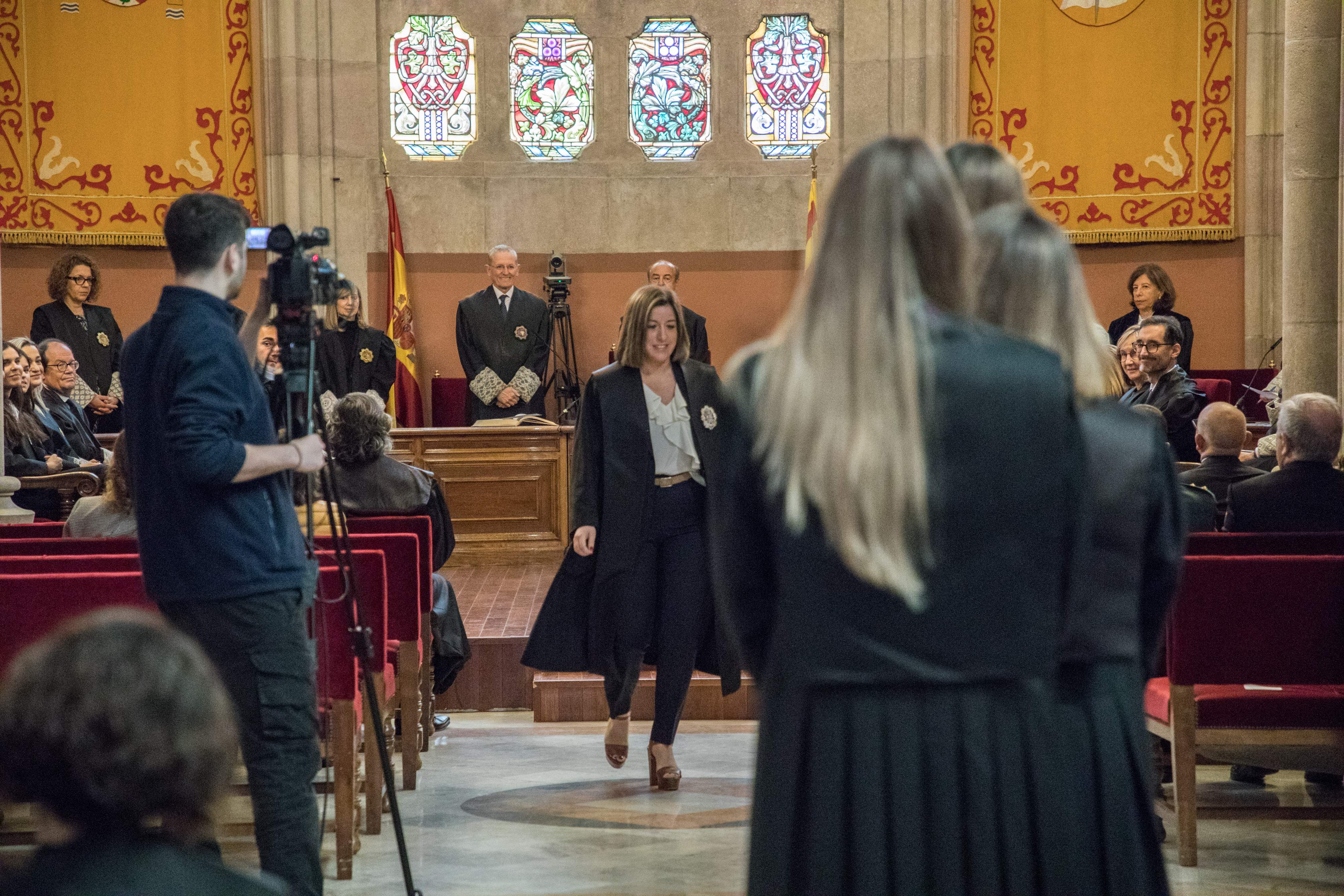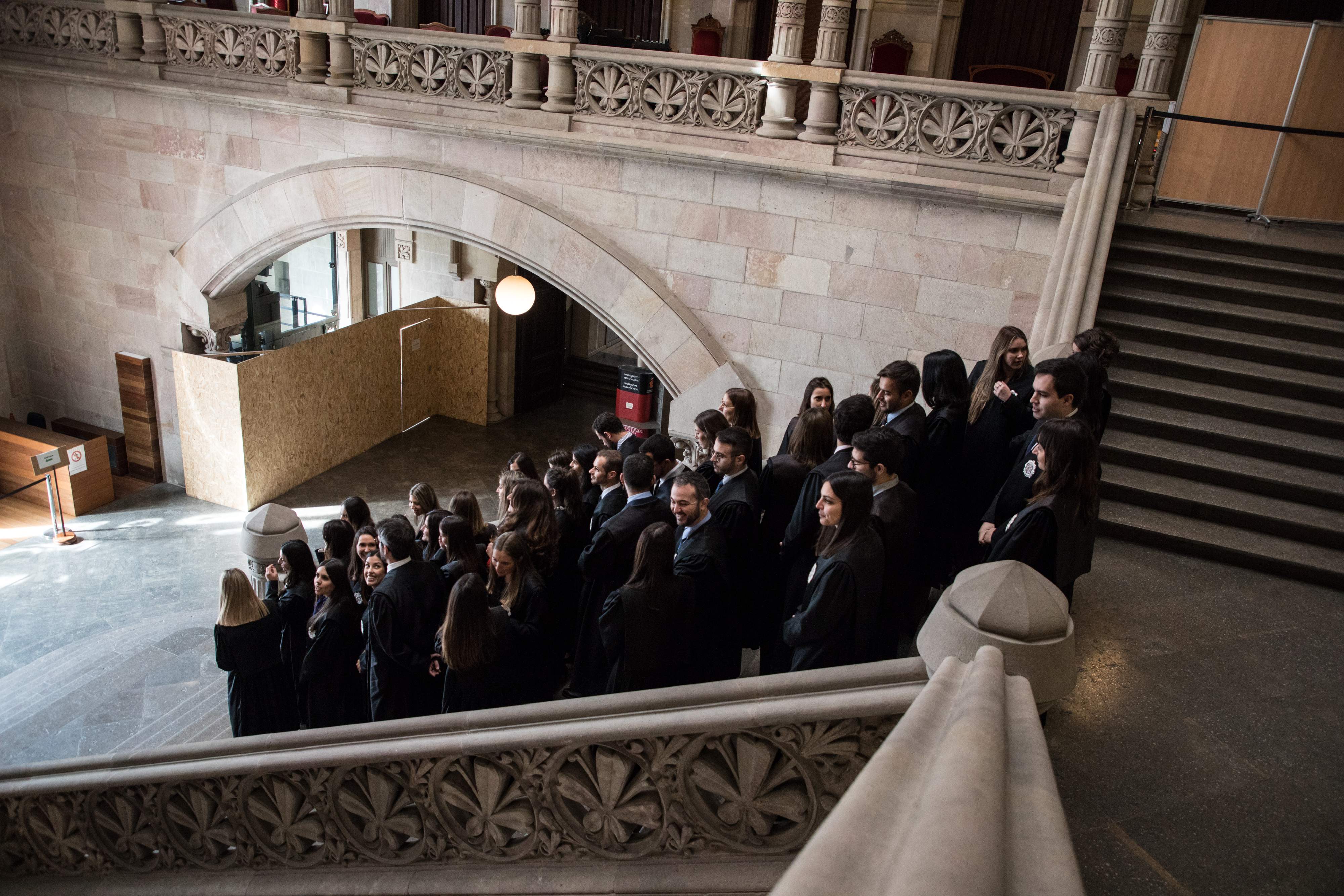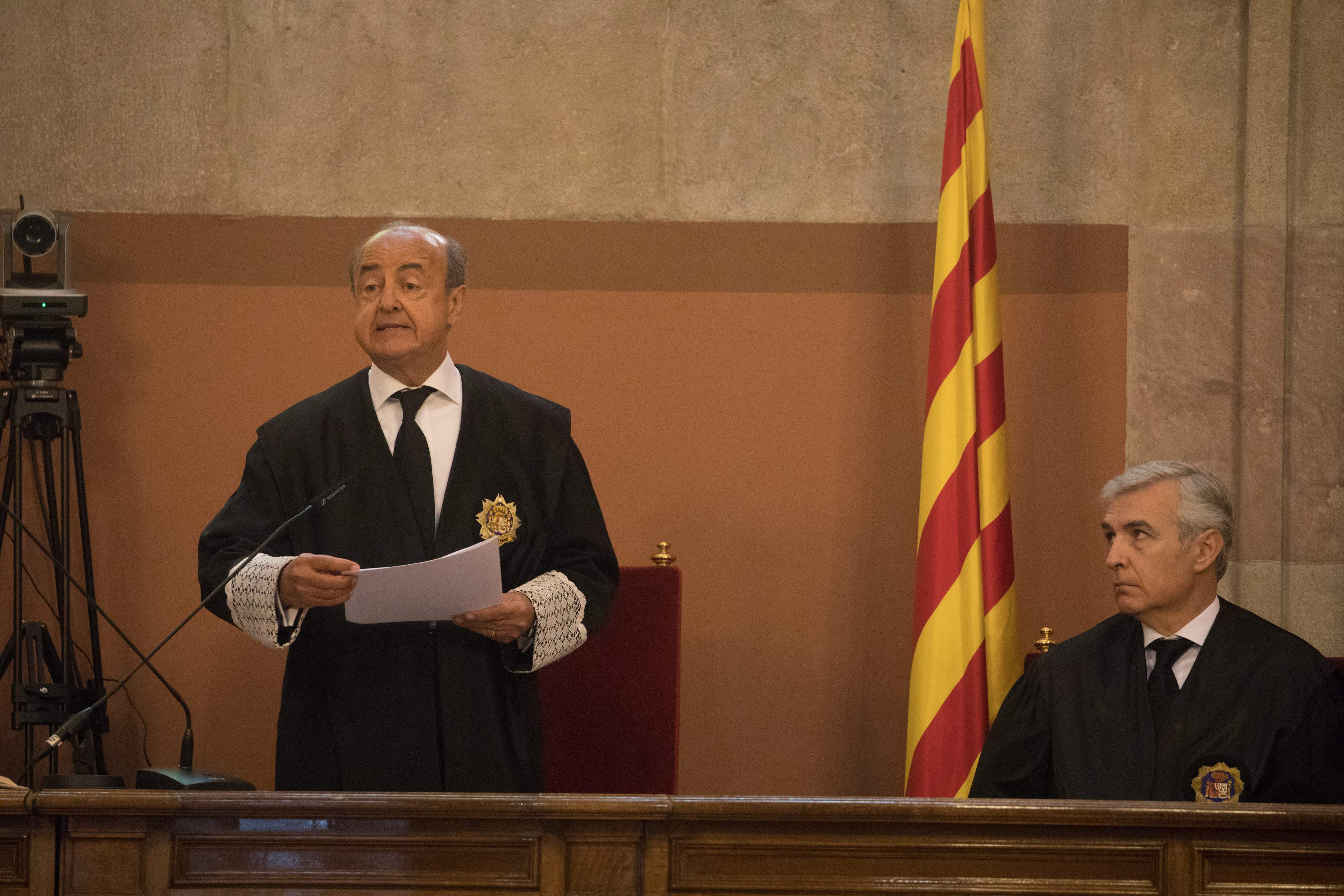The president of the High Court of Catalonia (TSJC), Jesús Maria Barrientos, has openly criticized Spain's future amnesty law which will end prosecutions in relation to the Catalan independence process. "A law that privileges a few against the whole of the citizenry can never be promoted as an element of pacification, but of discord, as evidenced in the academic debates on the so-called amnesty law, currently in its parliamentary passage." That's how clearly Barrientos put it this Monday at Barcelona's Palace of Justice, at the swearing-in ceremony of the 44 judges who will join the Catalan courts (nine took their oath in Catalan), and who last week received their qualifications in a ceremony presided over by the king, Felipe VI, who defended the judiciary in his own speech.

Barrientos - who is in his fourth year of an expired judicial mandate, due to the persistent deadlock in the renewal of Spain's judicial governance body, the General Council of the Judiciary (CGPJ) - referred to the law which proposes to wipe out independence process crimes in a critical tone, which could lead again to his recusal. "You have heard me say it on other occasions. The law is either general or it is not law", stated the TSJC president, adding: "Laws are passed, can be reformed and also repealed only by those who have the authority to do so, the judiciary. But, during their validity, the laws bind everyone equally, including the judges".
Trial of Jové, Salvadó and Garriga
The resumption of the Spanish Congress's debate on the passing of a law granting an amnesty for independence process actions will coincide with the trial at the TSJC of three Catalan Republican Left (ERC) politicians who held sub-ministerial positions in the Catalan government in 2017, Josep Maria Jové, Lluis Salvadó, and Natalia Garriga, for their roles in the organization of the 1-O referendum.
The TSJC president himself, Jesús Maria Barrientos, will preside over that trial, together with judges Carlos Ramos and Fernando Lacaba. Recently, ERC has denounced that the court has violated Jové's political rights as a current MP, as it has not agreed to change eight of the 22 sessions scheduled for the trial to avoid coinciding with parliamentary sessions. The trial begins on April 10th.
More resources
In his speech, the president of the TSJC invited the new judges destined for Catalonia from other autonomous communities to "appreciate" what their stay can bring them. Again, in this 72nd year of graduates from the judicial academy, the judges who live in Catalonia are a minority: fourteen, although it is twice as many as last year.
Barrientos also demanded that more resources be allocated to the administration of justice by the Spanish and Catalan governments to be able to improve the quality of service to the public. In fact, the Catalan minister of justice, Gemma Ubasart, also present at the event, appealed to the Spanish justice ministry that Catalonia needs at least fifty more judges to be at the national average.


